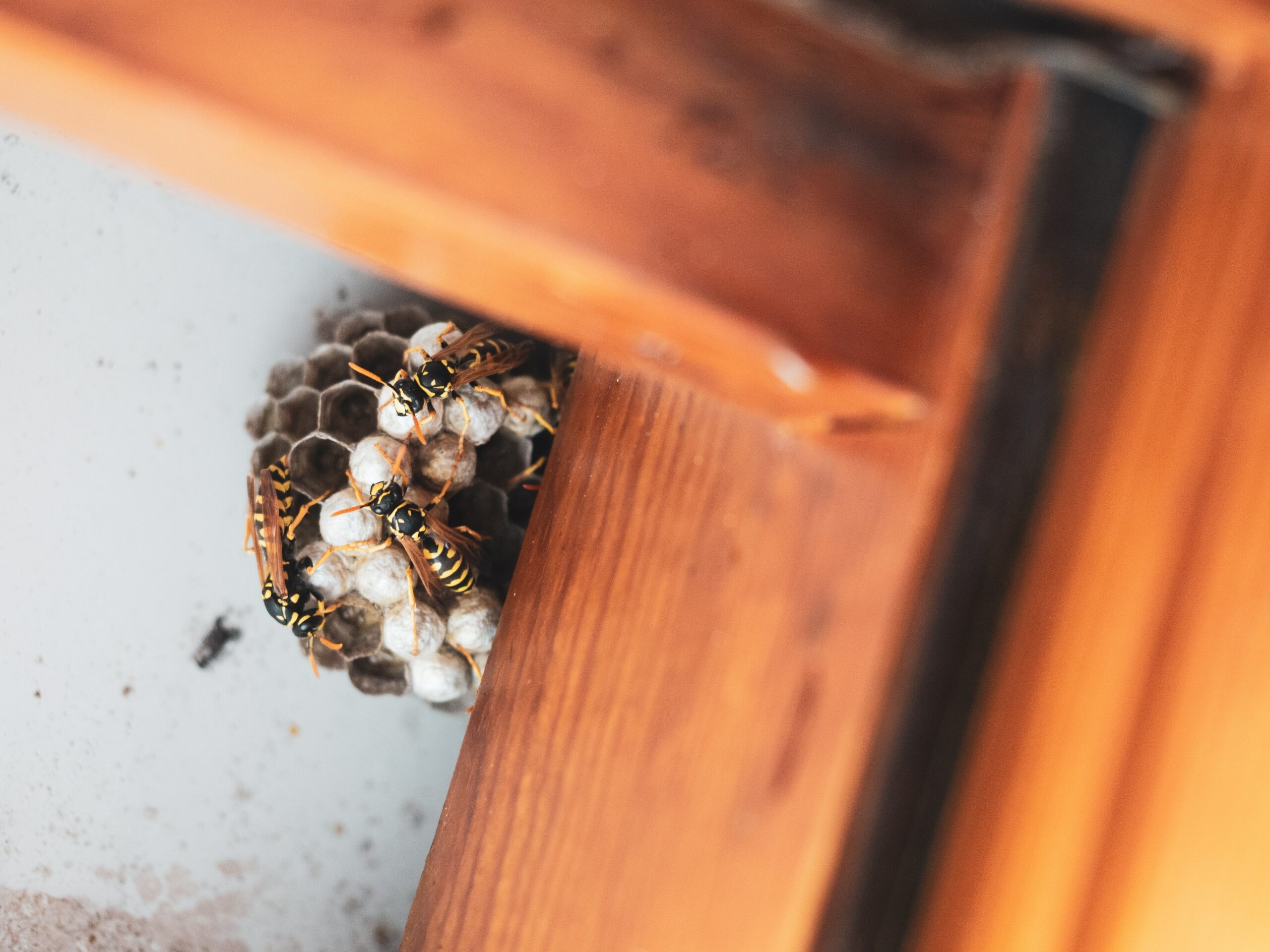So, you’re having trouble with raccoons? You may find yourself staring at your porch light, wondering if its faint glow could provide the ultimate solution. Sure, the radiant light illuminates the area, making any masked marauder think twice before stepping into the limelight.
However, it’s crucial to understand raccoons. They’re nocturnal creatures, so comparing their actions to our own might not necessarily unravel the elusive answer you seek.
Raccoons are attracted to certain things, such as food leftovers or trash being the primary draw. Yet, the question lingers:
Will a porch light deter these four-legged invaders? There’s no conclusiveness to that. While the light might give the illusion of human activity, potentially causing a moment’s hesitation, raccoons are notoriously bold and may not be so easily deterred.
So, your porch light might not be the perfect raccoon repellant after all. However, the combination of creative strategies could hold the key to your raccoon issues. Add in the dynamic element of unpredictability, because, after all, wildlife can be often unpredictable!
Understanding Raccoons’ Behaviors
Raccoons, famous for their ringed tails and bandit-like face masks, are a common sight in many parts of the world. Their behaviors, however, can be puzzling and sometimes troublesome to humans. Hence, understanding raccoon behavior is crucial in managing any potential problems.
The Nocturnal Nature of Raccoons
You might be wondering why raccoons are often associated with the nighttime. This is simply because raccoons are nocturnal creatures. They sleep during the day, tucked away in dens or hollow trees, and venture out at night to forage for food.
Raccoons’ Attraction to Human Habitats
While they are chiefly woodland animals, raccoons have shown a remarkable ability to adapt to urban settings. Human habitats offer easy access to food, hence raccoons can frequently be spotted rummaging through trash cans, pet food bowls, and compost heaps.
Raccoons’ Fear of Light: Fact or Myth?
There is a popular notion that raccoons are intrinsically afraid of lights. However, this claim can be a bit overstated. While it’s true that sudden illumination can startle these critters, raccoons usually adapt quickly and may not be indefinitely deterred by light.
Impact of Lights on Raccoons
Taking full consideration of our new understanding of raccoons, trying to comprehend the impact of lights on these creatures can be crucial in managing dwellings and raccoon interactions.
Reactions of Raccoons to Light
Raccoons, as nocturnal animals, are better adapted to low light conditions. A sudden flare-up of light may disorient or temporarily scare them away. However, it’s important to note that this reaction might not remain consistent over time.
How Lights Affect Raccoons’ Activities
While light may disrupt raccoons’ activities briefly, they often resume their foraging once the ‘threat’ seemingly passes. Light alone might not be a substantial deterrent to a hungry and determined raccoon.
Utilizing Light as a Deterrent for Raccoons
Using light can indeed be one way to discourage raccoon activity on your property, but it’s effectiveness can vary greatly. The brightness, duration, and unpredictability of light exposure may be factors influencing efficacy.

The Efficacy of Porch Lights in Deterring Raccoons
This brings us to the question – will a porch light keep raccoons away? Let’s discuss.
Raccoons and Porch Lights: An Observation
For people living in raccoon-infested areas, the experience often comes with frustration. Keeping the porch light on may deter raccoons initially. However, over time, these intelligent animals learn to associate light with human inactivity, making porch lights less effective as deterrents.
Expert Opinions on Using Porch Lights Against Raccoon Intrusion
Wildlife experts often suggest a multi-dimensional approach to manage raccoon invasion rather than relying solely on porch lights. Once a raccoon realizes that there’s no immediate danger associated with the light, it will likely continue its activities.
Limitations of Using Porch Lights as Deterrent
Relying heavily on porch lights has its drawbacks. Besides ineffective long-term deterrence, this method also contributes to light pollution and overconsumption of energy.
Alternative Ways to Keep Raccoons Away
Effective raccoon prevention requires integrated strategies. Let’s survey some of these approaches.
Using Raccoon-Proof Trash Cans
One of the most reliable ways to discourage raccoon invasions is by securing your garbage. Raccoon-proof trash cans with locking lids can be a worthwhile investment.
Sealing Access Points to Your Home
Another crucial step is to seal possible entry points into your home. Raccoons are known for their dexterity and can squeeze through surprisingly small spaces. Thus, residential areas should be thoroughly inspected and fortified.
Raccoon Repellents: Do They Work?
While there are numerous repellents available in the markets, their effectiveness is a subject of debate. Nonetheless, some people have reported success using natural deterrents like hot pepper, ammonia, or vinegar.
Role of Auditory Deterrents in Repelling Raccoons
In the attempt to deter raccoon visits, the use of auditory deterrents has come into play.
Effectiveness of Noise-Making Devices
Devices emitting high-frequency sounds or sudden loud noises can be used to startle and scare off raccoons, discouraging repeat visits.
Playing High-Frequency Sounds
High-frequency sound emitters can be an effective raccoon deterrent. These are especially useful for persistent invasions, where other methods have shown little effect.
Cons and Pros of Using Sound as a Deterrent
Despite their potential in repelling raccoons, noise devices should be used considerately. They can be disruptive to pets and human residents. However, the possibility of creating a raccoon-unfriendly environment might outweigh these cons.
Using Water Spray as a Raccoon deterrent
Another intriguing concept for raccoon deterrence involves the use of water.
Motion-Activated Sprinklers: Do they Work?
Turning on lawn sprinklers suddenly or using motion-activated sprinklers can deter raccoons. The sudden burst of water exercises the element of surprise, which raccoons generally don’t appreciate.
Problems Associated with Water Sprays
However, water-based deterrents can be problematic. In regions with water scarcity or restrictions on water use, water-based deterrents may not be a viable solution.
Best Practices When Using Water Deterrents
When employing water deterrents, intermittent use and strategic placement can go a long way, as predictability will reduce the effectiveness of these methods.
Coping with Raccoon Intrusion: Professional Assistance
In some cases, professional help may be necessary to handle raccoon invasions.
Benefits of Professional Animal Control Services
Professionals in animal control are equipped with the knowledge, tools, and skills necessary for effective and humane raccoon removal.
Procedures Carried out by Animal Control
Typically, the procedure involves trapping and releasing raccoons in appropriate habitats, far from residential areas. They might also provide advice on preventive measures and assessing raccoon activity on your property.
Do’s and Don’ts When Dealing with Raccoon Invasion
It’s crucial not to attempt handling raccoons yourself, as they are known carriers of diseases like rabies. Always keep a safe distance and rely on professionals for removal tasks.
Raccoons and Disease: Risks and Preventions
Raccoons aren’t just a nuisance; they pose health risks as well.
Common Diseases Carried by Raccoons
Raccoons can carry a host of diseases potentially harmful to humans, including rabies, raccoon roundworm, and leptospirosis.
Potential Risks to Human Health
Rabies can be life-threatening if not treated promptly. Raccoon roundworm can lead to severe neurological problems if its eggs, found in raccoon feces, are accidentally ingested or inhaled.
Precautionary Measures to Limit Exposure to Raccoon Diseases
To avoid contact with these diseases, never handle a raccoon, avoid direct contact with their feces, and ensure your home is secured against potential invasions.
Legal Implications of Raccoon Removal
Understanding local wildlife laws surrounding raccoon removal is crucial.
Understanding Local Wildlife Laws
In many places, raccoons are protected species, and it’s illegal to kill or trap them without a permit. Always verify with local authorities before taking any action.
Penalties for Unlawful Raccoon Removal
Unlawful raccoon removal can lead to hefty fines or legal repercussions. It’s always best to hire professional animal control services or at least get their advice before intervening.
Legal Methods for Discouraging Raccoon Visitation
Secure garbage disposal, property fortification, and humane repellents are all legal methods to deter raccoons.
Conclusive Thoughts on Light as a Raccoon Deterrent
Having navigated the intricacies of managing raccoon activity, it’s essential to reassess our understanding.
Reevaluating The Use of Porch Lights
Porch lights, while initially effective, may not serve as long-term deterrents for raccoons. The adaptive nature of these nocturnal critters means they quickly learn to overcome the obstacle that light poses.
Effective Multi-Pronged Approach to Raccoon Control
A comprehensive, multi-pronged approach seems the most effective for managing raccoon invasions. This can comprise securing food sources, sealing home entrances, and employing various deterrent methods in conjunction for maximum effectiveness.
Final Thoughts on Keeping Raccoons at Bay
While dealing with raccoons can be challenging, a good understanding of their behaviors and effective prevention strategies can keep these furry intruders at bay. Remember to always treat animals with respect, and approach raccoon management in a humane and environmentally conscious manner.











